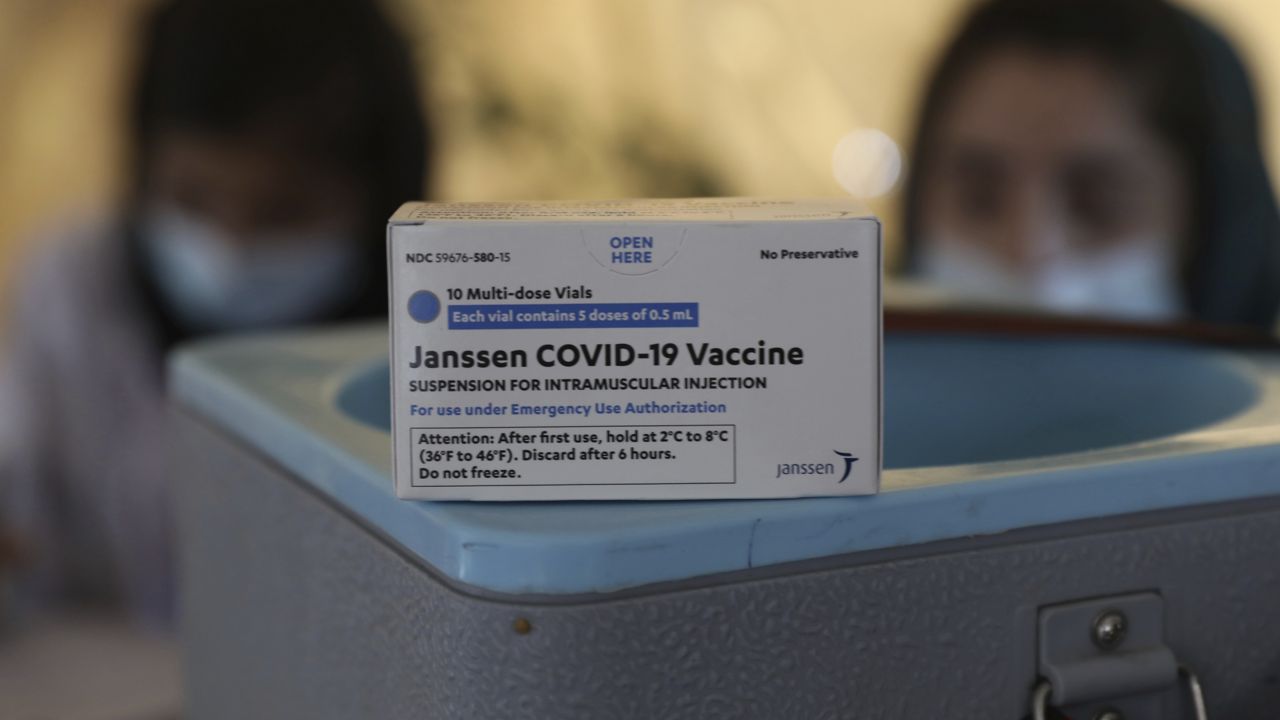Federal health officials warned Monday that Johnson & Johnson’s single-dose COVID-19 vaccine may pose a "small possible risk" of a rare, but serious side effect: Guillain-Barré syndrome, an autoimmune disorder that can cause muscle weakness and occasionally paralysis.
The Centers for Disease Control and Prevention (CDC) said in a statement that it has seen roughly 100 reports of individuals contracting the Guillain-Barré syndrome after receiving the Johnson & Johnson COVID-19 vaccine. Around 12.8 million doses of the vaccine have been administered nationwide.
On Monday afternoon, the Food and Drug Administration (FDA) updated its fact sheets for the J&J vaccine to warn administrators about the possible risk, and to offer recipients more information about Guillain-Barré syndrome.
The news was first reported by the Washington Post on Monday, and later confirmed the New York Times.
Most of the cases appeared around two weeks after an individual was vaccinated against COVID-19, and primarily occurred in men over the age of 50. The CDC said it would ask its panel of outside vaccine experts to review the issue at an upcoming meeting.
J&J didn’t immediately respond to a request for comment from The Associated Press.
Guillain-Barré is a rare autoimmune disorder in which a “person’s own immune system damages the nerves, causing muscle weakness and sometimes paralysis,” per the CDC.
Symptoms include tingling or weakness, often in the upper body, that can lead to partial or full paralysis that typically is temporary.
In an emailed statement to Spectrum News on Monday, an FDA spokesperson noted that individuals who received the J&J COVID-19 vaccine should seek immediate medical assistance if they experience any of the following symptoms: "Weakness or tingling sensations, especially in the legs or arms, that’s worsening and spreading to other parts of the body; difficulty walking; difficulty with facial movements, including speaking, chewing or swallowing; double vision or inability to move eyes; or difficulty with bladder control or bowel function."
Typically, anywhere from 3,000-6,000 people develop Guillain-Barré on an average year nationwide. While most people who develop Guillain-Barré make a full recovery, some are left with permanent nerve damage — and a small number of people have died after developing the autoimmune disorder.
Several factors are linked to the onset of Guillain-Barré, with about two-thirds of those who develop the syndrome having contracted diarrhea or a respiratory illness in the two weeks prior to diagnosis.
The CDC notes that “very rarely” have people developed Guillain-Barré after receiving certain other vaccines. While experts previously discovered an apparent link between a 1976 vaccination created specifically for the swine flu and an uptick in Guillain-Barré cases, the increased risk amounted to approximately one additional case for every 100,000 vaccines administered.
Officials at the CDC saw only one case of Guillain-Barré in an individual who received a trial dose of the Johnson & Johnson vaccine last year, with an additional case in the group who received a placebo shot.
An FDA spokesperson told Spectrum News that the agency has "evaluated the available information for the Janssen COVID-19 Vaccine and continues to find the known and potential benefits clearly outweigh the known and potential risks."
While the rate of those developing Guillain-Barré after the Johnson & Johnson vaccine is markedly low, the announcement will likely serve as yet another blow to the company which has struggled to gain the public’s trust.
In April, the FDA and CDC temporarily paused administration of the vaccine after several recipients in the U.S. developed a rare disorder involving blood clots.
That pause was lifted within days, with health officials maintaining that the benefits of the Johnson & Johnson vaccine far outweighed the risks.
The company hasn’t been able to produce as much of the vaccine as expected because of problems at a Baltimore factory that helps make the shots.
NOTE: This story was updated to include comments from an FDA spokesperson.
The Associated Press contributed to this report.



